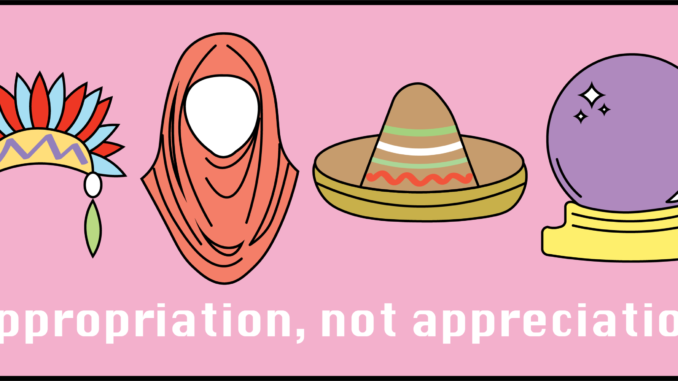
Respect, not roleplay
EDITORIAL
For many people, Halloween is one of the most exciting times of the year. Plenty of parties to celebrate, fun decorations, scary movies and most of all, costumes.
But for many others, Halloween and the festivities around it can feel insensitive and hurtful, changing the holiday from a fun celebration with friends into a time of uncomfortableness.
Cultural stereotypes are all too common within the celebration of Halloween, and it’s well past time to acknowledge it. Costumes embodying stereotypes of groups of people or other cultures is not appreciation, it’s appropriation and it is not okay.
Native American tribal dress, makeup modeled after Japan’s traditional geisha girls, outfits imitating the large coats worn by inuit people and hijabs worn by Islamic women.
The list can go on and on and we have all seen it. Costumes that are made in poor taste out of the most stereotypical articles one can derive from a culture.
These costumes rarely show any authentic appreciation from their source, but instead just create a caricature of the culture, almost solely being pulled from the most common tropes that can be found.
Costumes like these are not only insensitive, but can also be harmful to these groups of people and how they are viewed.
“It goes deeper than what you’re dressed like,” said Henu Josephine Tarrant, a performer of the Ho-Chunk, Hopi and Rappahannock tribes, when discussing cultural appropriation in story published by NPR.
“When you really look at it and you really study these tropes and stereotypes and what they mean and how they affect us as Native people, you know they’re all rooted in a historically violent past.”
The costumes depict Indigenous people as a monolith frozen in time, she said. “It really is a reflection of how we look to [non-Native Americans] and what we are to them,” she said.
Times are continuing to change, and pointing to the past and making claims about “the way things used to be” is not enough.
It is not always about you, and listening to the thoughts and feelings of those around you is worth more than pride.
We should listen to what our neighbors have to say, and try to be mindful. To not do so is not just ignorant, but selfish and disrespectful to your fellow people. Appreciate other cultures by researching the background behind their traditions.

Leave a Reply